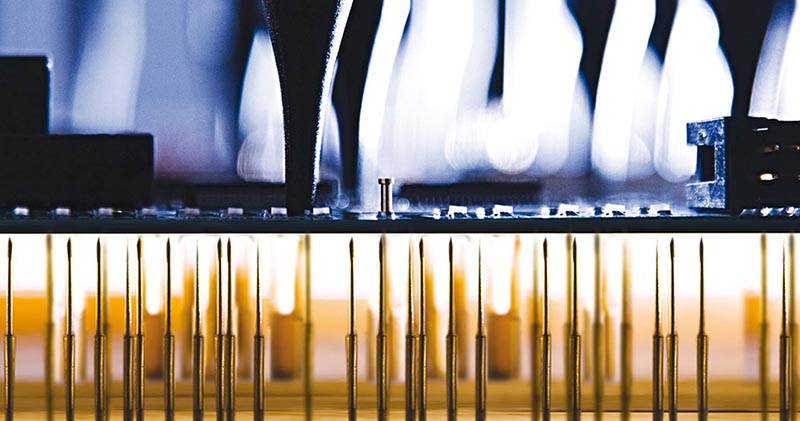In the electronics manufacturing industry, especially in the field of PCBA (Printed Circuit Board Assembly) assembly processing, project risk management is crucial. With the intensification of market competition and the diversification of customer needs, companies must seek effective ways to reduce project risks. The introduction of innovative technologies can not only improve production efficiency, but also reduce project risks to a large extent. This article will explore how to achieve this goal through innovative technologies in PCBA assembly plants.

1、Advanced Design Tools
The use of EDA Software
In the PCBA assembly process, the use of electronic design automation (EDA) software can significantly reduce the risk of design errors. Modern EDA tools can not only help engineers design circuits more efficiently, but also through simulation and verification of the design, timely detection of potential problems. This early intervention can avoid subsequent modifications due to design flaws, reducing the overall risk of the project.
Design for Manufacturing (DFM)
By implementing Design for Manufacturing (DFM) principles, PCBA factories can ensure that a design is feasible for production.DFM tools take into account the constraints and requirements of the manufacturing process during the design phase, thereby reducing the risk of a mismatch between design and production. This innovative technology allows engineers to foresee and solve possible production problems at the design stage.
2、Automate the Production Process
Introduction of Intelligent Equipment
The introduction of automated production equipment in PCBA factories can significantly improve production accuracy and reduce the risk of human error. Automated equipment in the production process can carry out efficient and accurate operation, thus reducing the quality problems caused by improper manual operation. This innovative technology not only improves productivity, but also reduces the risk of rework and returns due to product quality issues.
Real-Time Monitoring System
By installing a real-time monitoring system, PCBA factories are able to track the status of equipment and product quality in real time during the production process. The system can detect and correct production problems in a timely manner, reducing risks in the production process. For example, the monitoring system can detect products with substandard soldering quality in a timely manner, thus preventing these defective products from entering the market.

3、Data Analysis and Prediction
Big Data Technology
In modern PCBA processing, the application of data analysis and big data technology is becoming more and more widespread. By analysing data from the production process, factories are able to identify potential production bottlenecks and quality issues. This data-driven decision-making process enables managers to take timely action and reduce project risks.
Predictive Maintenance
Using data analytics, PCBA factories can implement predictive maintenance. By monitoring and analysing the operating status of equipment, factories can perform maintenance before equipment failure occurs, thus avoiding production interruptions due to equipment failure. This innovative technology effectively reduces the risk of equipment downtime and improves the continuity and stability of production.
4、Flexible Production Capacity
Customised Production
With the changing needs of customers, PCBA factories need to have flexible production capacity. Through the use of flexible production technology, factories can quickly respond to changes in customer demand, to achieve small batch, multi-species production model. This flexibility not only reduces the risk of inventory, but also meets the market demand for new products to be launched quickly.
Rapid response mechanism
Innovative technology also enables PCBA factories to establish a rapid response mechanism. Through the intelligent manufacturing system, the factory can achieve a rapid response to market changes, timely adjustment of production plans. This rapid response capability can reduce the project risk due to market demand fluctuations and improve customer satisfaction.
In the field of PCBA processing, through the introduction of innovative technologies, factories can effectively reduce project risks. From advanced design tools to automated production processes to data analysis and forecasting, innovative technologies provide new solutions for project management. With the continuous development of the market, PCBA assembly factories should continue to explore and implement innovative technologies in order to improve their competitiveness and market adaptability and ensure the smooth progress of projects.


